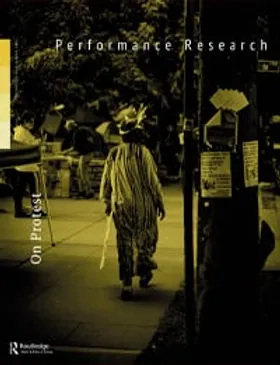Sweet Crude
Black gold blues
Sandy Cioffi’s Sweet Crude documents the havoc wreaked by the oil industry in the Niger Delta
by MATT JONES
September 23, 2010
“It began as an attempt to record a
group of good people doing a goodwill gesture but it was
immediately strange to me that they needed volunteers in a place
that’s producing billions of dollars worth of oil,” says Cioffi.
During the shoot people she met urged her to document the conditions
of the Delta: the transformation of white sand beaches into oily,
muddy riverbanks, acid rain caused by natural gas fires, communities
without schools or hospitals, and the violence of the army and
private security agencies that’s regularly unleashed against the
region’s frequent protests. Impressed by the determination of the
Ogani people to resist what’s happening to their land, she made a
decision to step back and let their voices shape the story she was
telling. The film uses narration to bring the audience into her
ambivalent journey away from journalistic objectivity as she began to
campaign for the cause.
“You have to be honest: it gets very
murky very quickly. I’m still not prepared to say that everything I
did was the right thing to do, but I tried to make the most
courageous choices I could,” she says.
Some of the most powerful moments of
the film are interviews with activists who want to remain dedicated
to the principle of non-violence but feel that the world isn’t
listening.
“On an emotional level it broke me
open that they wanted me to understand that they believe we, the
West, have closed the window on their options. They believe we were
responsible to pay attention before the guns came out.”
As the tension between the non-violent
and the armed factions of the movement grew, Cioffi found herself in
close quarters with the members of the Movement for the Emancipation
of the Niger Delta (MEND), a group that has carried out kidnappings
and attacks on oil pipelines. While those connections got her places
no other journalist was able to reach, they also pushed the film in
certain directions.
“When you’re in a place where
there’s a militant organization running the waterways, in order for
you to even be there safely someone had to give you permission to be
there and the assumption is that you’re telling the story from
their point of view.”
But the militants weren’t the only
people to shape the film. The final chapter had to be changed after
the whole crew were detained for seven days by the Nigerian
government and their footage was confiscated. In the end, no
organization comes out looking like they have their hands clean.
“I wanted to tell a story where
everything is grey. In fact, the sky is so many different colours of
grey because of the poison in the air that I used a special kind of
filter on the camera so you can see more shades of grey than you’ve
ever seen in your life.”
Cinema Politica
is screening Sweet
Crude this Monday
September 27 at 7
p.m. in Concordia’s
H-110 (1455 de Maisonneuve
West). See http://www.cinemapolitica.org/
for details of Cinema
Politica’s 2010 season.
Montreal Mirror September 23, 2010 (this is the unedited text)



Comments
Post a Comment